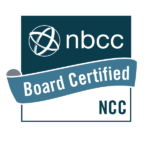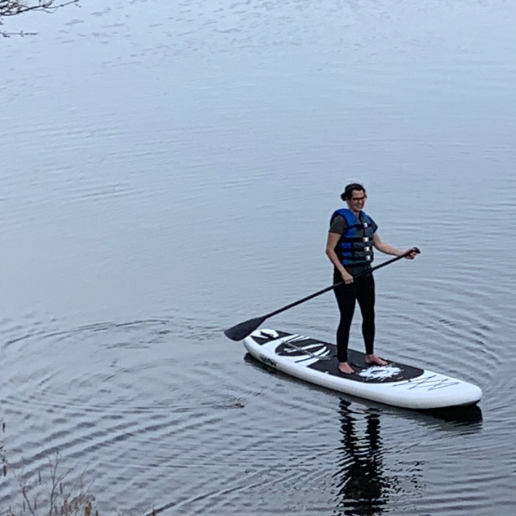How would your life change if you embraced the wild and sensitive parts of yourself?
How would your life change if you knew how to embrace your wild and sensitive child or teen?
Welcome! My name is Amy Bryant, MS, EdS, LPC. I am a licensed and board certified mental health therapist dedicated to helping women, parents, and emerging adults (age 14+) struggling with anxiety, depression, school refusal, suicidal ideation, cutting and other forms of NSSI, explosive behavior, OCD, high sensitivity (HSP), self-esteem, insomnia, gender and sexual identity exploration, or who are just trying to figure out how to navigate the world with a neurodivergent brain and body. I also facilitate consultation groups for professionals who work with kids, teens and families.
My therapeutic parenting approach centers on a harm reduction model that aims to increase relational safety, emotional regulation, and ease in everyday life.
I am LGBTQI+, Neurodivergent, and Mental Health affirming and inclusive, and I am always learning more.
When Nothing Works (3 CEU)
Friday, January 24, 2025
12p-3:15p EST (virtual) $87
This workshop is for adults who live or work with kids and teens. While not all challenging behaviors can be traced to a traumatic event, many families will benefit from therapeutic parenting practices due to the challenges at home, at school, and or in the community, where "nothing else works."
Amy's Services
- Psychotherapy
- Therapeutic Parenting
- Clinician Groups
- Trauma treatment: Brainspotting, Somatics & Clinical Hypnotherapy
- Standup Paddleboard Therapy
- Referrals
- Recommended Books
Special Training
- Neurodivergent Somatics
- Polyvagal for Trauma, Secondary Trauma, & Burnout: Navigate & Reshape the Nervous System
- Therapeutic Hypnosis for OCD, Discrete & Chronic Trauma & Memory Reconsolidation
- Anxiety & OCD Treatment Strategies (including ERP)
- Brainspotting
More Information
Individual Intake $200
Individual Therapy $175
Parenting Intake $250
Therapeutic Parenting $225
Parent Group $100
I accept HSA and provide a SuperBill for insurance reimbursement when available.
Federal "No Surprises Act" Notification (2024)
Located in Georgia.

How to Engage, Regulate
& Empower Kids
This 3-CEU on-demand workshop is for mental health professionals, parents, caregivers, educators, and other adults who live and work with children. Explore ways to increase children's engagement and emotional regulation in the therapy room through attunement and safety. And using strengths-based tools to help children better understand themselves.

My services are rooted in evidence-based, experiential, and trauma-sensitive practices that accept your lived experience, and its relationship to neuroscience, social science, and development across the lifespan.
I believe that as you explore and restore your strengths, you'll deepen your understanding of and trust in yourself. This shift allows you to have more agency over your behaviors, thoughts, emotions, and physiological reactions to the people and the world around you.
Your brain and body are always in service to your survival. So when life becomes too much, you may get stuck in survival mode and unable to function optimally. You might feel stuck in anxiety, depression, overwhelm or lack of motivation; or you may struggle with chronic pain, burnout, rage or suicidal ideation.
Together we will use your experiences, strengths and inner wisdom to move out of these stress responses, and identify the your wild and sensitive strengths to get you unstuck.
Survival strategies are easier to recognize in kids, who are still learning to regulate the way they communicate their stress. If you're a parent or caregiver struggling to understand your child's behavior, you've probably already tried punishments and rewards.
I offer group learning, coaching and support to help you do something altogether different. By viewing children's behavior through the lens of their neurobiological development and autonomic nervous system, we will uncover why your child is struggling and work to identify the supports you and your child need in order to do and feel better.
Why don't I work directly with children? Young children who are struggling with dysregulated behaviors and emotions need more intensive interventions than I can provide in weekly online sessions. However, the many hours you are with them, combined with the work we do together, can help you better understand how bring more regulation to their nervous system and your own. I highly recommend reviewing my referral page for direct work with your child.
Do you have a wild and/or sensitive child?
Are they emotionally intense?
Are they sensory sensitive to the environment?
Do they seek physically intense interactions?
Do they struggle to engage in activities?
Do they lash out for no apparent reason?
Are you feeling wild and/or sensitive yourself?
Are you struggling physically?
Are you sensitive to noise, large groups, or clutter?
Do you lash out or burst into tears unexpectedly?
Are you forgetful, restless, or discontent?
Is it hard to connect with and enjoy your life?
What to Expect
Our first session is a 2-way interview for us to review your paperwork, get to know each other, identify your goals, and assess our "goodness of fit."
I view therapeutic work as an opportunity to better understand yourself, others and your relationships. My goal is never to seek compliance with rules, and instead to focus on strengths and skill building. Together we will work towards your goals starting right where you are now.
These are the guidelines I follow with clients of every age:
- Our relationship is one of equals. I will seek your permission (and permission from your child) in every interaction and activity.
- All forms of communication are accepted. We are not limited to verbal communication. We can also use art, play, song, dance, and more, including all forms of AAC and Facilitated Communication.
- All clients have complete freedom of movement. While sitting is an option, we also embrace movement, fidgeting, and laying on the ground.
- I believe in a relationship-centered approach to therapy and respect individual client's development and skills.
- Clients can end the session at any time.
- Body autonomy will always be respected. Stop means stop and no means no. Always.
- Eye contact is neither required nor requested.
CHILDREN
What one person sees as a wild or out-of-control child, I see as a child struggling with stress and nervous system regulation. Children may not always communicate their distress verbally, but they always show us when something needs to change. Together we can work to understand what you and your family need in order to do and feel better.
- If your child has intensely dysregulated emotions and behaviors without a history of trauma, I highly encourage you to get an Occupational Therapy evaluation before you sign your child up for any kind of psychotherapy. Oftentimes very intense children need help integrating their sensory system and/or some of their basic reflexes.
- I encourage parent-child relational therapy for most families. Specifically, a therapeutic approach that values the voices and needs of every family member, and focuses on co-regulation and collaborative problem solving.
- I embrace current development and skills. Children can only meet our high expectations when we align our expectations with their ability and provide the supports they need to be successful.
- Behavior is a valid means of communication. Rather than focusing on changing behavior, we work to understand what need is being communicated without pathologizing the behavior.
- I do not use or encourage the use of rewards or punishments. No stickers, toys, food, swats, time outs, grounding, threats, etc. Rewards and punishments are behavior-focused. We focus on building relationships, meeting needs, and building skills.
- My office (including my virtual office) is a No Hit Zone. People who choose to work with me must commit to giving up spanking, swatting, and threatening the youth in their lives. I will help you develop alternate ways to respond to behaviors that you find challenging.
- I embrace pro-neurodivergent goals, including self-advocacy, self-determination, perspective taking (self and others), figurative language, interoception, and buildling upon strengths.
- I will trust the child in the therapy session. Children know what they need, and I will trust and support them.
Many of these guidelines are inspired by "Respectfully Connected" author Court Alice Thatcher and The Neurodiversity Collective.
NOTE: I do not engage in any form of behavior-focused therapy that aims to place the responsibility for change on children. Instead, I help parents better understand the roots of their children's behaviors, identify the supports their children need in order to display fewer stress behaviors, and I support parents in processing their own feelings of overwhelm and frustration so they can be the parents they want to be, and the parent their children need.
